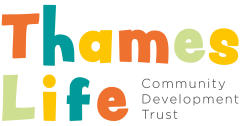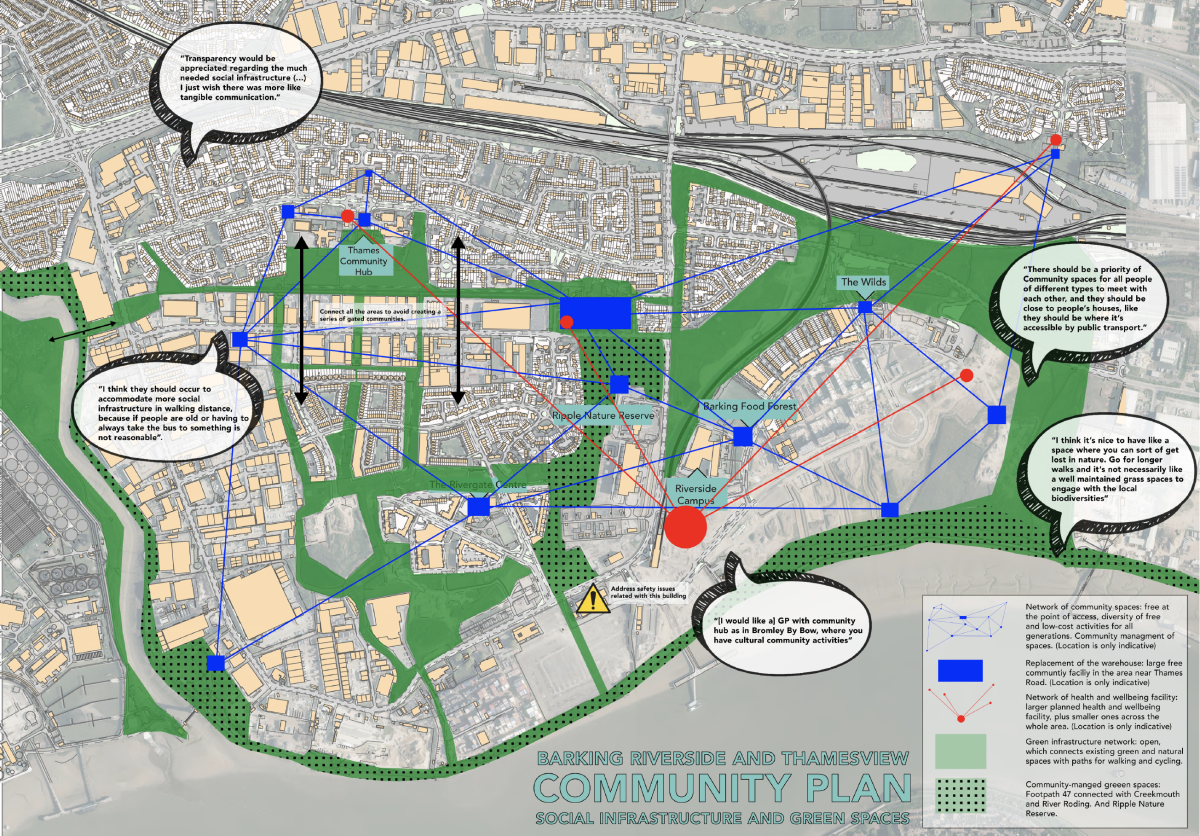Thames Life is pleased to present a report which has been collaboratively produced with Dr. Pablo Sendra’s team at the UCL School of Bartlett. The report is a community plan which was crafted in a series of workshops with residents from Thames View and Barking Riverside. The report details findings in which residents were placed at the center of co-designing how social infrastructure should be constructed in Barking Riverside to meet demand. The densification of Barking Riverside, planning application for additional homes rising to 20,000 and the additional 5000 homes in Thames Road, according to the views of a significant sample size of residents, requires the creation of further social infrastructure.
Social infrastructure reigns in on a variety of different elements that enable the practical participation of local people in organised or disorganised spaces of activity. Put simply, if residents want to meet informally to socialise, express or interact with each other based on cultural values, or for the purposes of human, face to face interaction, these spaces must be ‘planned for’ to allow these interactions the physical space to take place. In complementary fashion, social spaces which are more formal such as nurseries, play parks, health facilities (which allow for social prescribing and activities), locations for sports, youth centers, arts, culture and performance spaces and lastly, community centers. Green, and blue spaces also operate to serve resident need for ecology, as community allotments. Creekmouth open space, the Barking Food Forest, Ripple Nature Reserve, Ripple Greenway and Footpath 47 begin to serve as crucial spaces in the natural environment for the needs of local people.
The report, diligently produced by UCL in collaboration with residents engaged with through Thames Life contains the granular details of opening the wider picture in the midst of London developments promoted by the GLA such as opportunities areas, and resident views correlated with the Local and London Plans. The audit of pre-existing social infrastructure highlights what is missing, and what needs to be done to make up for the shortfall.
Thames Life embarked on this venture with UCL while the Every One Every Day Warehouse was still open, with the original intention to keep it open with this community plan. As we discovered – this was not possible. The community plan changed shape and became what is published today. We Thank UCL and the Bartlett School of Planning and the Just Space network in considering our small patch of London, and the future of residents living here.
Vishal Narayan, Community Organiser and Regeneration Officer.
To read the report, click on the link: https://discovery.ucl.ac.uk/id/eprint/10193733/

